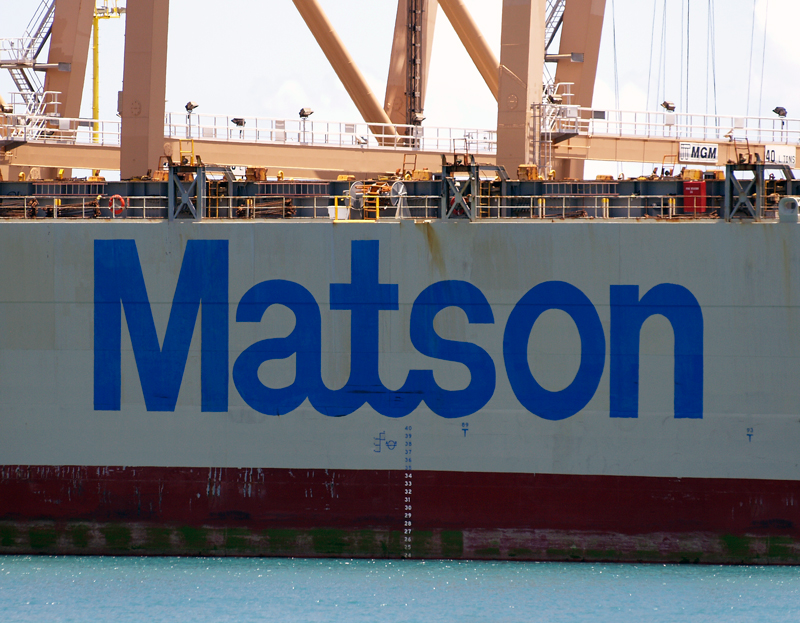
The Honolulu-based shipping company, reporting higher quarterly and annual profits Tuesday, revealed that port congestion led to more business for Matson’s China Express.
In economics, when someone loses, someone else wins. But it’s still astonishing to note that the West Coast longshore contract drama, which snarled shipping, helped Matson Inc.
“The company realized significantly higher freight rates in its China trade, reflecting the high demand for its expedited transpacific service, which was amplified by cargo availability delays experienced by other ocean carriers associated with port congestion on the U.S. West Coast,” said Matson CEO Matt Cox in the company’s quarterly earnings report.
The China Express works like this: Matson takes a ship which has hauled freight westbound to Hawaii and Guam, continues to China, visits several ports to pick up cargo, and sails back to Long Beach, Calif. It’s called the China Express because Matson’s ship sails faster than the massive containerships from Hong Kong, and it takes a more northerly course where the Pacific isn’t as wide. When it arrives, Matson has its own terminal at Long Beach, less congested than the major terminals that bore the brunt of port congestion over recent months.
